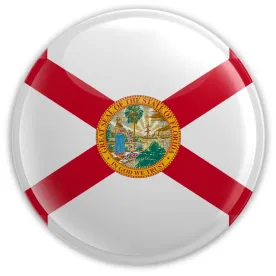Effective January 1, Florida's notary laws are changing. In general terms, remote notarization will now be permitted, meaning that if certain criteria are met and the statutory protections are in place, the notary will no longer have to physically (in person) witness the person sign the instrument requiring notarization, but rather notarization can be accomplished through a video feed and recording.
To qualify as a remote notary, a notary must complete a two-hour training course, post a $25,000 bond, and obtain $25,000 of errors and omissions insurance coverage. Additionally, there are multiple technology requirements for notarizing an instrument via remote connection.
In addition to the creation of the remote notarization requirements, changes to Florida Statutes Section 117.05 require revisions to the form of the notary block to be contained on instruments and affidavits, and this change in the form is mandatory (on all forms, not just forms that are electronically notarized). The relevant portion of the statutory acknowledgment of a principal in their individual capacity should read as follows (the yellow-highlighted section is the new required language):
The foregoing instrument was acknowledged before me, by means of ☐ physical presence or ☐ online notarization, this ____ day of _______, __(year), by __________ .......
Similarly, for an instrument requiring an oath or affirmation, the relevant portion of the statutory certificate should read as follows (the yellow-highlighted section is the new required language):
Sworn to (or affirmed) and subscribed before me, by means of ☐ physical presence or ☐ online notarization, this ____ day of _______, __(year), by __________ ......
All other portions of the notarization block remain in effect. The failure to include this language commencing on January 1 may result in the document being rejected for purposes of recording. The important date is the date the document is signed. If a document is signed before January 1, then the "old form" is fine, even if the document is recorded after January 1. That being said, if the document is signed on January 1, then it should be on the new form to avoid any potential recording issues.
Finally, although the statute is not effective until January 1, we recommend that you begin using updated notary blocks immediately so as to avoid any problems.




 />i
/>i

